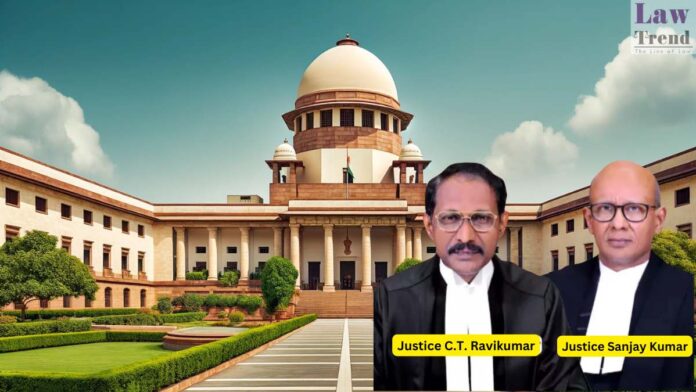In a landmark judgment, the Supreme Court of India ruled that serious crimes, such as sexual harassment, cannot be quashed merely on the basis of a private settlement between the accused and the complainant. Delivered by Justice C.T. Ravikumar and Justice Sanjay Kumar in Criminal Appeal No. 3403 of 2023 (Ramji Lal Bairwa & Anr.
To Read More Please Subscribe to VIP Membership for Unlimited Access to All the Articles, Download Available Copies of Judgments/Order, Acess to Central/State Bare Acts, Advertisement Free Content, Access to More than 4000 Legal Drafts( Readymade Editable Formats of Suits, Petitions, Writs, Legal Notices, Divorce Petitions, 138 Notices, Bail Applications etc.) in Hindi and English.




